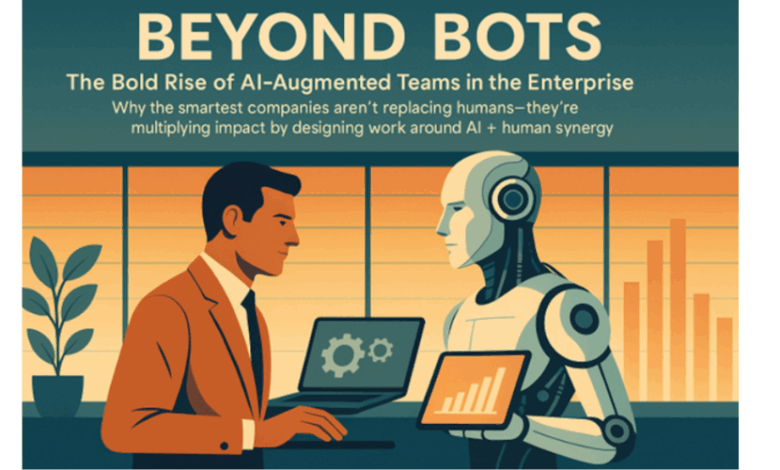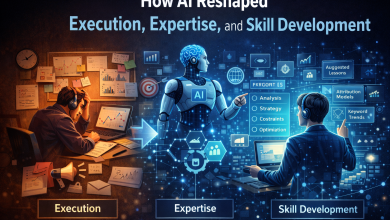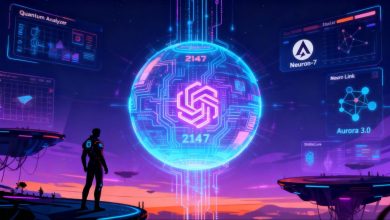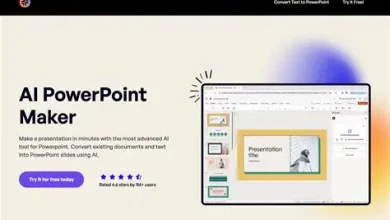
The future of work isn’t arriving. It’s already here. And it doesn’t look like robots replacing humans, it looks like smart humans collaborating with even smarter systems.
Across industries- tech, finance, healthcare, customer support the quiet integration of AI into day-to-day tasks is no longer novel. It’s operational. And it’s changing everything.
From Fear to Function
There was a time when AI triggered panic. Conversations revolved around mass layoffs and job obsolescence. According to a report by PwC, up to 30% of jobs are at risk due to automation by the mid-2030s. But what actually unfolded was far more nuanced and optimistic. AI isn’t necessarily taking jobs, it’s transforming them.
AI’s Evolving Role in the Workplace
Mundane tasks like data entry, content tagging, and basic customer queries are now handled by intelligent systems, freeing professionals to focus on what truly matters: strategy, creativity, human connection.
In customer service, for instance, AI agents are the first line of response, tackling FAQs at scale, around the clock. Gartner reports that by 2027, chatbots will become the primary customer service channel for 25% of organizations. But when nuance, empathy, or escalation is needed, human agents take the wheel. This kind of augmentation doesn’t just increase efficiency it enhances job satisfaction and raises the bar for customer experience.
What the New Skillset Really Looks Like
The new economy doesn’t require everyone to become data scientists. But it does demand something arguably harder to scale: adaptability.
The professionals thriving in AI-powered environments aren’t just tech-savvy, they’re AI-cooperative. They know how to work with algorithms, refine prompts, question outputs, and improve models over time. They view AI not as a tool to control, but as a collaborator to consult.
Gone are the days of rigid SOPs. Today, it’s about orchestrating AI inputs, fine-tuning workflows, and responding in real-time to machine feedback. The edge isn’t technical. It’s strategic.
Leadership, Rewired
Project managers and C-suite leaders are navigating new waters. It’s no longer just about timelines, budgets, or headcount. It’s about designing agile ecosystems where AI and people don’t just coexist; they co-create.
Smart organizations aren’t waiting for tech literacy to catch up. They’re building internal programs that onboard both humans and AI systems simultaneously. The objective? Build fluency. Instill trust. Scale curiosity.
Proof in Practice: Industry Use Cases
In the financial world, AI drafts reports. Analysts layer in interpretation, narrative, and nuance.
In healthcare, AI surfaces diagnoses and treatment suggestions. Clinicians validate and personalize care paths.
In marketing, AI accelerates campaign ideation. Human creatives refine voice, context, and emotional tone.
This isn’t hypothetical. These aren’t beta projects. This is the new normal for companies serious about performance and scale.
Culture Still Wins
The biggest barrier to AI adoption? Not the tech. Not the budget. It’s the Culture. A 2023 McKinsey report identifies organizational culture as the leading obstacle to AI scalability.
AI fails when it’s seen as a threat. It thrives when positioned as a partner. The difference comes down to communication, mindset, and transparency.
Companies leading in this space prioritize:
- Trust and clarity around AI’s role
- Ecosystems of continuous learning
- Space for trial, error, and evolution
- Workflows that still center human values
Adoption becomes transformation when the team believes in the journey, not just the dashboard.
So, What Now?
The mission ahead isn’t about doing more with less. It’s about doing more with more – more intelligence, more collaboration, more foresight.
AI isn’t the future of work. It’s the present. And the organizations that get this are already reaping the benefits.
Success won’t come from having the flashiest tools. It’ll come from asking better questions, designing inclusive systems, and choosing augmentation over automation.
The future belongs to those who co-build with AI right beside them.
About the Author
Ashwini Suryavanshi is a Senior Project Manager in the Salesforce ecosystem, specializing in digital transformation, cross-functional leadership, and the art of building high-trust teams in an era of intelligent technology.





